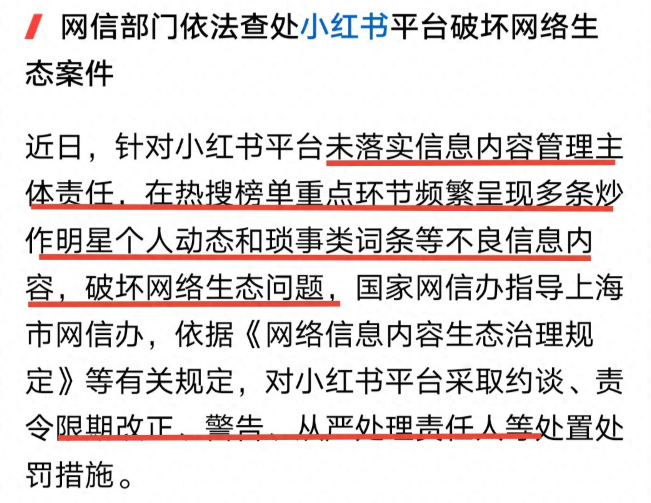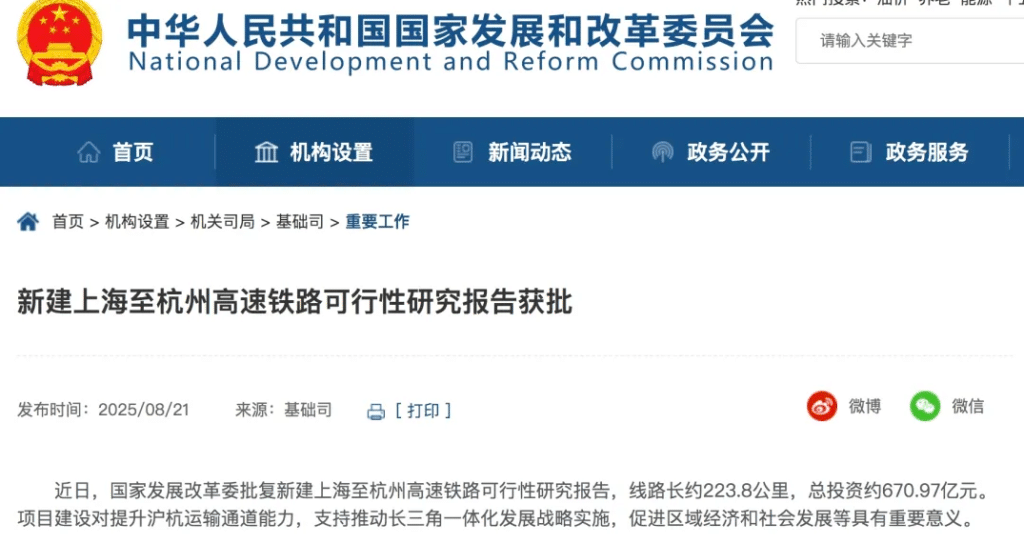At the start of 2025, Little Red Book (Xiaohongshu) was once a source of pride for many Chinese. After the U.S. banned TikTok, large numbers of American users flocked to the platform. Posts comparing lifestyles between China and the U.S. went viral, with many Americans praising China’s prosperity—even Elon Musk’s mother joined the app.
Back then, Chinese netizens celebrated the platform as a window for foreigners to “see the real China.” But only a few months later, Xiaohongshu has been summoned and warned by regulators, criticized for polluting the online ecosystem with low-brow, entertainment-driven content.

The Fall: From Global Hype to Domestic Scrutiny
According to People’s Daily Shanghai, China’s internet authorities recently interviewed and warned Xiaohongshu for “damaging the online environment.”
The problem? Its hot search ranking system has been hijacked by shallow, celebrity-related gossip:
- Celebrity divorce rumors
- Secret meet-ups and dinner gossip
- Airport “OOTD” looks
- Unfiltered paparazzi photos
- Stars’ favorite snacks, like luosifen (river snail noodles)
Instead of informative content, the trending lists turned into a celebrity gossip arena, full of “fan-circle hype” and commercial manipulation.

Why Does It Matter? Youth and Values
Xiaohongshu’s user base is overwhelmingly young:
- Ages 15–24: 43%
- Ages 25–34: 36%
- 35 and above: ~20%
This means more than four-fifths of its users are under 35, and they’re increasingly exposed to low-value, entertainment-first trends. Critics worry that this shapes a shallow, consumerist mindset, crowding out healthier cultural or educational content.
Money Behind the Hype
The issue isn’t just “traffic”—it’s money.
Industry insiders reveal that some hot search slots on Xiaohongshu are sold for up to ¥800,000 per keyword. MCN agencies, brands, and fan groups spend heavily to push trivial topics onto trending lists, fueling endless cycles of gossip and hype.
In this sense, Xiaohongshu’s decline is seen as profit-driven rather than user-driven.

Not Just Xiaohongshu
While Xiaohongshu is now under the spotlight, other platforms face similar issues:
- Some apps promote clickbait “sexy content”, such as videos of women showing off their bodies, racking up millions of views.
- Others amplify celebrity gossip to maintain “user stickiness.”
Xiaohongshu simply crossed the line further and faster, triggering regulatory pushback.
Public Response: “About Time!”
Online reactions have been largely supportive of the crackdown. Many netizens argue that Xiaohongshu “lost its soul to capital” and that such regulation is necessary to restore order to China’s digital space.
The sentiment is clear: what was once a source of pride has now become a symbol of excessive commercialization and low-brow hype.
Conclusion
Xiaohongshu’s fall from grace is a lesson for all platforms. Foreign praise may bring pride, but sustainable growth depends on content quality, not gossip-driven hype.
With regulators tightening oversight, Xiaohongshu—and the broader Chinese internet industry—now face a choice: chase quick profits through shallow trends, or invest in healthier, more valuable content ecosystems.



